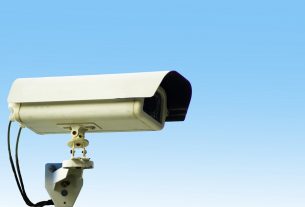Reliable video surveillance plays a vital role in ensuring the safety and security of various environments, such as homes, businesses, and public areas. By capturing and monitoring real-time footage, CCTV security cameras act as a deterrent to potential threats and provide valuable evidence in case of incidents. However, there are several common reasons that can lead to video loss in these systems, compromising their effectiveness. Understanding these issues is crucial for maintaining a robust surveillance setup.
This post tackles the common reasons behind the loss of video in CCTV security cameras, shedding light on potential problems that users may encounter. By recognizing these issues, users can take appropriate measures to address them and ensure continuous monitoring without interruptions.
Environmental Factors Affecting Video Signal
Electrical Interference
Electrical interference poses a significant challenge to the uninterrupted functioning of CCTV security cameras. This interference can arise from various sources, such as power lines, electrical equipment, or even nearby electronics. When electrical interference occurs, it can result in distorted or disrupted video signals, leading to poor image quality or complete video loss. The presence of electromagnetic fields generated by these sources can interfere with the transmission and reception of video signals, causing flickering, rolling bars, or static on the screen. To mitigate this issue, it is crucial to ensure proper grounding and shielding of cables, use high-quality video cables, and separate power and video lines to minimize the chances of electrical interference.
Extreme Weather Conditions
Another factor that can adversely affect video signals in CCTV security cameras is extreme weather conditions. Harsh weather elements like heavy rain, snow, strong winds, or extreme temperatures can impede the proper functioning of the cameras. During heavy rainfall or snowfall, the accumulation of moisture on camera lenses or housing can obstruct the field of view and blur the captured images, making it difficult to discern details. Additionally, strong winds can cause camera vibrations or movement, leading to unstable video footage. In extreme temperature conditions, cameras may experience overheating or freezing, resulting in operational issues or even damage to the equipment. To address these challenges, it is recommended to install cameras with weather-resistant enclosures, use heater or cooling systems for temperature regulation, and regularly clean camera lenses to ensure clear and reliable video surveillance in adverse weather conditions.
Hardware and Equipment Problems
Faulty Power Supply
One common reason for the loss of video in CCTV security cameras is a faulty power supply. When the power supply is unreliable or defective, it can cause intermittent power interruptions to the camera, leading to video loss. This issue may arise due to damaged power cables, loose connections, or a malfunctioning power adapter. It is essential to ensure that the power supply components are in good condition and securely connected to prevent this problem from occurring.
Connectivity and Cable Problems
Another factor that can result in the loss of video is connectivity and cable issues. Faulty or damaged cables can disrupt the transmission of video signals from the camera to the recording system. Loose connections, cable breaks, or improper termination can cause intermittent or complete loss of video feed. It is crucial to regularly inspect the cables, connectors, and junction points to identify any signs of damage or poor connections. Proper cable management and using high-quality cables can help mitigate this problem.
Software and Configuration Issues
Incorrect Camera Settings
Incorrect camera settings can lead to the loss of video in CCTV security cameras. Issues such as incorrect exposure settings, improper focus, or misconfigured image parameters can result in poor image quality or no video output at all. It is important to ensure that the camera settings are appropriately configured to match the lighting conditions and desired image quality. Regularly reviewing and adjusting the camera settings can help maintain optimal video performance.
Network and Recording System Errors
Problems with network connectivity, such as network congestion or router issues, can disrupt the transmission of video data to the recording system. Additionally, software glitches or misconfigurations in the recording system can prevent the video from being recorded or accessed. It is advisable to regularly monitor the network infrastructure, ensure proper network bandwidth allocation, and keep the recording system’s software up to date to minimize these issues.
In order to maintain reliable video surveillance with CCTV security cameras, it is crucial to address common issues that can lead to video loss. By understanding and mitigating environmental factors, addressing hardware and equipment problems, and resolving software and configuration issues, users can ensure continuous monitoring without interruptions, enhancing the effectiveness of their security systems.
Publisher’s Details:
Vertex Security Systems
400 2nd Ave, New York, NY 10010
(212) 586-3633
vertexsecurity.com
info@vertexsecurity.com
Put your trust in Vertex Security for exceptional security services in Manhattan, NY tailored specifically to your business requirements. Our unwavering dedication lies in helping you protect what matters most to you.
Also read: 5 Common Types of Access Control Security Systems




